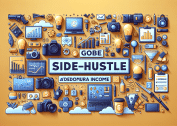The landscape of work is evolving at an unprecedented pace. As technology, globalization, and shifting workforce expectations reshape the professional environment, career development strategies for 2025 must be forward-thinking, adaptive, and practical. Employees and professionals who invest in skill growth, networking, and personal branding will be best positioned to thrive in a competitive, ever-changing market. This article explores emerging trends, actionable strategies, and insights into how professionals can future-proof their careers in 2025.

Understanding the Future Workforce
The future workforce will be defined by rapid technological advancement, hybrid work models, and a heightened emphasis on adaptability. According to the World Economic Forum, by 2025, over half of all employees will require significant reskilling due to automation, AI integration, and changing industry demands (World Economic Forum, 2023). Professionals need to anticipate these shifts and incorporate continuous learning into their career development strategies.
Key factors shaping career development for 2025 include:
- Automation and AI: Routine tasks are increasingly automated, placing higher value on creative, analytical, and interpersonal skills.
- Remote and hybrid work: Flexible work models require digital literacy, self-management, and strong communication skills.
- Global competition: Talent mobility and remote work options mean professionals compete on a global scale.
- Emphasis on soft skills: Emotional intelligence, adaptability, and leadership capabilities are becoming as important as technical skills.
Emerging Trends in Career Development
Several trends are driving the need for updated strategies in professional growth:
1. Continuous Learning and Upskilling
Reskilling and upskilling are no longer optional. Industries are evolving rapidly, and employees must remain agile.
- Microlearning platforms: Short, targeted courses from providers like Coursera, LinkedIn Learning, and Udemy allow professionals to develop skills without interrupting their work.
- Certification programs: Industry-recognized credentials validate skills in AI, data analytics, cybersecurity, and project management.
- Cross-functional skill acquisition: Expanding expertise beyond a single specialty enhances employability and adaptability (Forbes, 2023).
2. Digital Presence and Personal Branding
A strong online presence has become integral to career growth. Professionals must manage their reputation and visibility across digital platforms.
- LinkedIn optimization: Sharing insights, participating in discussions, and showcasing projects boosts professional credibility.
- Portfolio development: Visual and interactive portfolios demonstrate skills to recruiters and clients.
- Thought leadership: Writing articles, speaking at events, or contributing to industry publications enhances authority and networking opportunities (Harvard Business Review, 2023).
3. Networking and Mentorship
Despite technological advances, personal connections remain critical. Building strong networks and seeking mentorship accelerates career progression.
- Virtual networking: Attending online industry events, webinars, and conferences expands reach beyond local markets.
- Peer learning groups: Collaborative learning with peers fosters skill development and problem-solving abilities.
- Mentorship programs: Guidance from experienced professionals provides insight into navigating industry trends and leadership challenges (SHRM, 2023).
4. Embracing Flexibility and Hybrid Work
Career development strategies must account for hybrid work models, which demand new approaches to productivity, collaboration, and leadership.
- Time management tools: Calendar blocking, task prioritization, and productivity apps help maintain focus and balance.
- Virtual collaboration skills: Mastery of platforms like Zoom, Microsoft Teams, and Slack is essential for effective communication.
- Remote leadership competencies: Leading teams remotely requires trust-building, outcome-focused management, and empathy.
5. Health and Well-Being Integration
Sustainable career growth increasingly incorporates personal well-being. Burnout prevention, mental health, and work-life balance are central to long-term success.
- Mindfulness practices: Meditation, journaling, and structured breaks support focus and resilience.
- Physical activity: Regular exercise enhances energy levels, cognitive performance, and stress management.
- Workplace wellness programs: Organizations are offering flexible schedules, mental health support, and wellness resources to foster productivity and engagement (American Psychological Association, 2023).
Practical Career Development Strategies for 2025
To navigate the evolving workforce, professionals can implement the following strategies:
- Conduct a Skills Audit: Evaluate current competencies against industry requirements. Identify gaps and prioritize areas for growth.
- Set Measurable Goals: Establish short-term and long-term career objectives. Align skill acquisition with these goals.
- Engage in Continuous Learning: Dedicate time weekly for professional development through courses, workshops, and certifications.
- Build a Personal Brand: Curate a digital presence, share insights, and engage in thought leadership within your field.
- Leverage Networking Opportunities: Attend industry events, join professional groups, and seek mentors.
- Adopt Productivity Systems: Use time management tools, project management software, and communication platforms to maximize efficiency.
- Prioritize Health and Well-Being: Implement routines that support mental, physical, and emotional health to sustain long-term performance.
- Monitor Industry Trends: Stay informed about emerging technologies, market shifts, and career pathways relevant to your profession.
Challenges to Consider
While implementing career development strategies, professionals may encounter challenges:
- Rapid Technological Change: Keeping pace with emerging tools and methodologies requires dedication and adaptability.
- Information Overload: The abundance of online resources can be overwhelming; structured learning plans are essential.
- Economic Uncertainty: Global economic fluctuations may affect job stability, requiring flexibility and contingency planning.
- Work-Life Integration: Balancing career growth with personal responsibilities remains a persistent challenge.
The Role of Organizations in Supporting Career Growth
Companies play a critical role in facilitating professional development. Forward-thinking organizations invest in employee growth by:
- Offering access to learning platforms and training programs.
- Creating mentorship and coaching opportunities.
- Promoting flexible work arrangements to enhance productivity and well-being.
- Encouraging cross-functional collaboration to develop versatile skill sets (Deloitte Insights, 2023).
Conclusion
As the workforce continues to evolve, professionals must embrace a proactive, strategic approach to career development. By integrating continuous learning, digital presence management, networking, hybrid work competencies, and well-being practices, individuals can navigate uncertainty and position themselves for success.
Career development strategies for 2025 require a holistic mindset, balancing technical expertise, interpersonal skills, and personal resilience. Those who invest in themselves and adapt to emerging trends will not only survive but thrive in a dynamic, technology-driven professional environment.
References
- World Economic Forum. (2023). The Future of Jobs Report 2023. https://www.weforum.org/reports/the-future-of-jobs-2023
- Forbes. (2023). Top Skills for 2025 and Beyond. https://www.forbes.com/sites/forbeshumanresourcescouncil/
- Deloitte Insights. (2023). Future of Work: Career Development Strategies. https://www2.deloitte.com/









